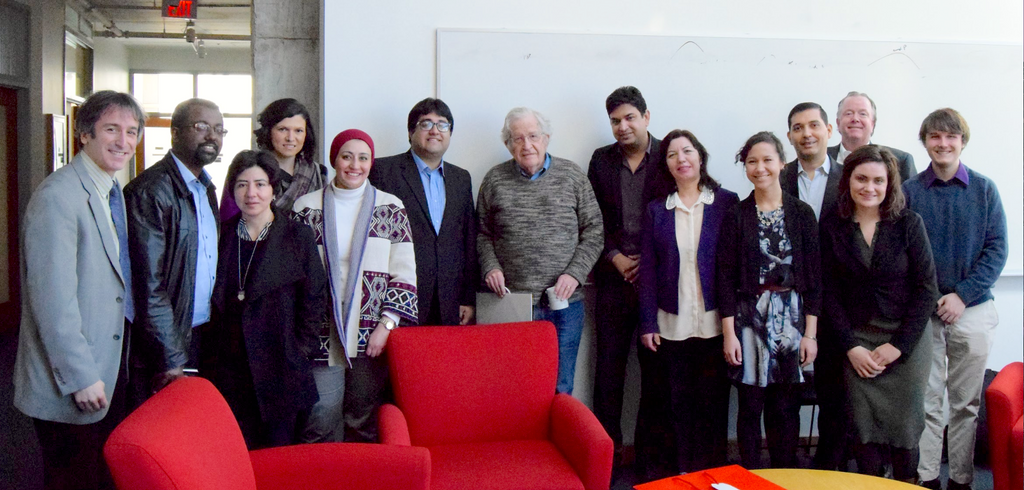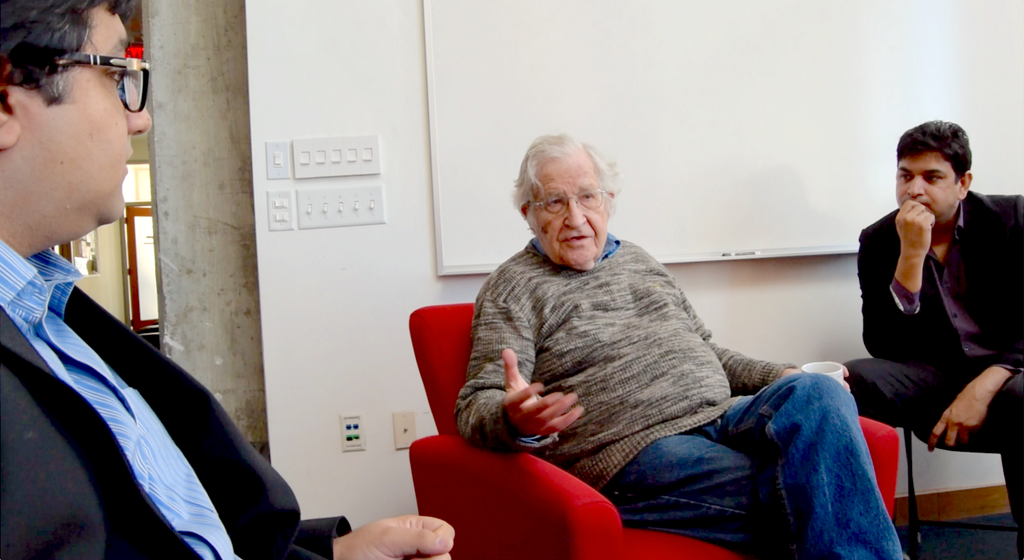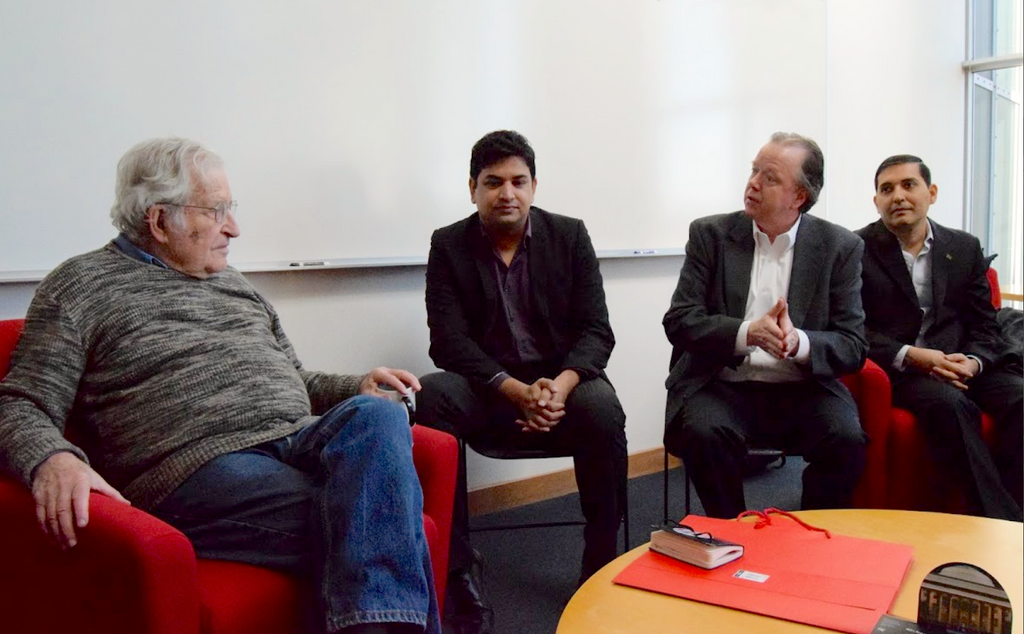A Conversation with Noam Chomsky

On Friday, February 26th, we traveled across the Charles River to MIT, where Noam Chomsky, Institute Professor & Professor of Linguistics (Emeritus), hosted us for an hour of lecture and discussion on some of the most pressing issues facing the modern world.
Chomsky began and ended on a topic that has been on all of the Fellows’ minds: the sociopolitical climate in the U.S. today. He explained, “there is anger and desperation and frustration—but very little hope.” He compared American society today to that of the 1930s, when living and working conditions were much harsher and the suffering was much greater—but which, nevertheless, was “a very hopeful time.” He further explained that hopelessness is what prevents people today from bringing about important social reforms as their 1930s predecessors did.
Chomsky explained that that when President Roosevelt was elected in 1933, he was basically a conservative who wanted to focus on balancing the federal budget. Roosevelt championed the New Deal only after a militant labor movement started affecting major industries. It was widespread popular pressure that prompted Roosevelt to change and bring the New Deal to life.
Chomsky went on to argue that the sociopolitical climate in the U.S. is a minor issue compared to that of global warming. “Within a generation, Florida is going to be underwater, and Boston is mostly at or below sea level. Boston is rich—but what about places like Bangladesh, which is a coastal plain? Hundreds of millions are going to be driven out. […] Europe claims they have a refugee crisis now; wait until hundreds of millions of people are fleeing from unlivable areas. […] The human species is now in a position where we have to decide how we’re going to survive.”
Chomsky then raised an even greater global threat than climate change: nuclear war. He described how we are closer to nuclear war now than at any time during the Cold War.
At the end of our time together, Chomsky stated that there is no single approach to solving these epic challenges; it will take efforts in virtually all sectors and countries. He underscored that ordinary citizens must not leave this work to their leaders; as in the case of the U.S. in the 1930s, it will take widespread popular pressure—again fueled by hope.


We were deeply honored by this opportunity to discuss such pressing issues with the father of modern linguistics and one of the greatest thinkers of our time.